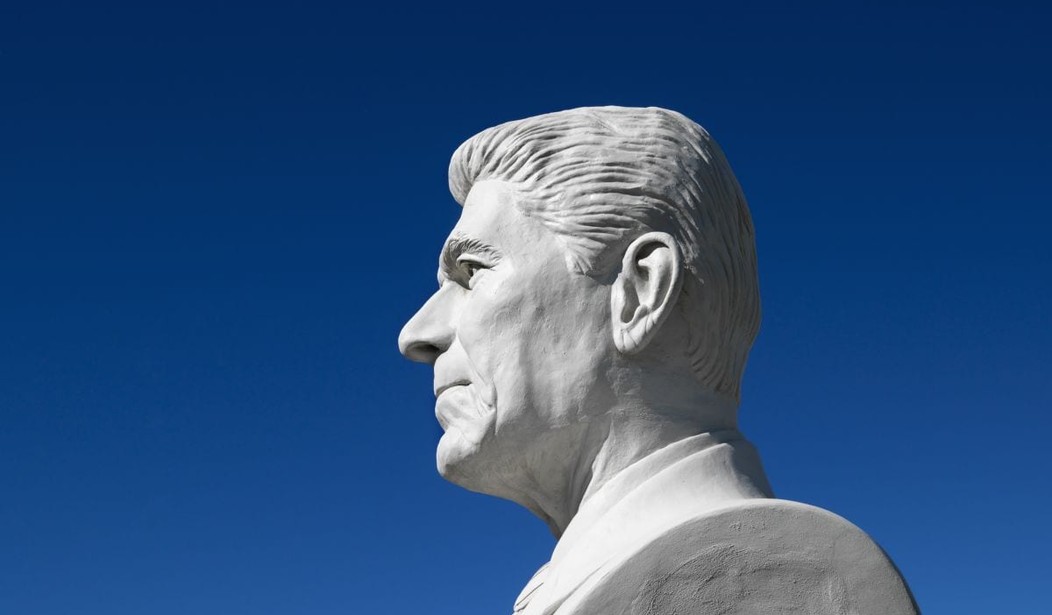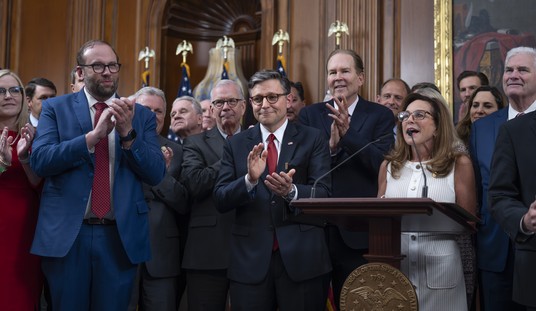New York Times columnist David Brooks, appearing on NPR’s All Things Considered on Friday, made some observations about the “post-Trump” GOP that bear examining.
CORNISH: Not a lot of time left here, but, David, I do want to bring up – you’re already talking about the post-Trump party, and somehow with optimism, which surprises me, given what you’ve just said.
BROOKS: Yeah, I’m seeking optimism, despite all the evidence. (LAUGHTER)
DIONNE: Faith.
BROOKS: And the argument is that the Republican Party was, for many years, the Reagan party. And for some years in the 1980s, that was fine. But the ideology became increasingly obsolete. And what Trump has done is he’s destroyed the remnants of it.
And after Trump loses, which I trust he will, then there’ll be time for rebirth and a revolutionary phase where you have multiple interpretations about what the Republican Party can be, but it won’t be going back to the obsolete Reagan ideology. It will have to be something new because Donald Trump has exposed it for being a shell of what it formally was. His only virtue is that he’s destroyed a dying husk, but something creative and something new and maybe something exciting will come in its stead.
CORNISH: E.J., you’ve been writing a lot about how conservatives need to change to avoid crisis, but what do you make of what David’s saying? And how does this affect Democrats?
DIONNE: Well, I just wrote a book basically arguing that conservatives, if they wanted to avoid a crisis like this, needed to change and needed to find a more moderate approach that they’ve lost over all these years. I’d like to think David is right that this crisis will lead them back to not only a more moderate conservatism, but a conservatism more relevant to 2016 and not 1980 or 1964, where they keep looking backward.
Is Donald Trump a Republican? David Brooks says so, so it must be true. Is he a conservative? E.J. Dionne says so, so it must be true. It’s too late to alter the narrative that Trump is the epitome of Republicanism and conservatism, but just for the record: Trump is not a Republican, nor is he a conservative. He worships at the altar of Trump. His ideology is whatever enters his head every 30 seconds. He has no principles.
But he has captured a large segment of people who think they’re conservative and Republican. In that sense, Brooks is on point. So what comes after Trump?
Trump didn’t destroy the “dying husk” of Reaganism. That’s because Reagan’s ideas are timeless. His basic message of limited government, individual liberty, and free markets has been with us since the Founding. Reagan only reminded us of that message’s importance.
But it’s interesting that Brooks et. al. want to usher Reagan off the stage in favor of a more “moderate” conservatism. The history of that time shows that President Reagan, facing a large Democratic majority in the House, had to moderate his proposals in order to get them passed in some form. Reagan would have been drummed out of the conservative movement for his constant concessions to Democrats if he held office today. Amnesty (real amnesty that made instant legal residents of millions of illegal immigrants), tax increases (the largest in history), Social Security reform — Reagan’s biggest achievements came through the art of compromise, anathema to today’s conservatives.
Brooks should be praying for someone like Reagan to lead the Republican Party. Reagan learned pragmatism as governor of California and brought those principles to the White House. He was never the ideologue that the hard right wanted him to be. Nor was he the devil the left painted him to be.
Today’s conservatives have elevated Reagan to the status of a civic saint — a “true” conservative. He was no such thing. He was as conservative as the world allowed him to be, which sometimes forced him to be quite moderate. He is ranked one of the top presidents of all time not because he was a shining beacon of conservatism. but because he got things done.
So is it time to slough off the “dying husk” of Reaganism? If that means letting go of the myths surrounding Reagan that have led to his legacy being claimed by all sorts of candidates with no similarity in beliefs or temperament to The Gipper, then it’s probably a good thing that the “Reagan legacy” is laid to rest.
When I first became serious about politics in the mid-1970s, the Democrats had a similar problem with a dead president. Franklin Roosevelt’s legacy was still being invoked and worshiped. FDR overshadowed everything and his legacy was put to work so that liberals began to justify any outrageous proposal as something that FDR would have done.
But you simply can’t transplant ideas from one era to the present, be it the 1930s or the 1980s. I have no doubt that if Reagan were alive today and president, he would have different ideas on how to address the challenges we face. They would bear little resemblance to his platform of 1980 because the challenges are different. But Reagan, the pragmatist, would have found a way to get them through Congress.
And this is what Brooks wants to get rid of? No wonder he’s referred to as the dumbest pundit in the business.










Join the conversation as a VIP Member